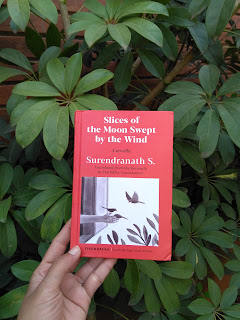He writes about Amma whose lap is his safe haven when he gets splitting headaches. He writes about Appa who dotes on him, is miffed with God and wakes up at the slightest sound from the deepest sleep.
He writes about his Doddakka (elder sister) who pampers him and draws the most beautiful rangolis; about Sanakka (another sister) who never spares anyone who bullies him, tells him stories in the backyard in moonlight; about Tangi (younger sister), a 1 ½ yr old baby who looks like a sugar doll.
There’s Anna (elder brother) who calls him a ‘pain’, pinches & beats him when alone, another ‘dead’ sister who reappears at their doorstep one day, Appa’s friend who teaches him at home, Dr. Shetty who’s always kind, a maternal uncle who regales him with the frog prince story, a man from Muharram procession who smiles and waves at him, he writes about them all. Though some of his notes feel disjointed to start with, it’s brilliant how everything (including the title) makes complete sense as we read.
‘I will not tell you how I look. Whatever your imagination is, I look worse than that.’ And as you turn the pages, you care the least about his looks for you know he has the most beautiful mind. Wise and mature beyond his years, he isn’t angry with God for his illness, with the school principal who refuses him admission or with the world that greets him with shock before half-pretending everything’s okay; he’s ‘special’ indeed!
Slices of the Moon Swept by the Wind by Surendranath S, translated from Kannada by Prathibha Nandakumar, is a heart rending glimpse of a special child’s little world from his POV, of his family beset by many serious problems. In the introduction to the book, the author writes about his paternal aunt who he is extremely fond of. He claims that the book is loosely based on her and her family. He also states that it is Raghavendra Khasaneesa's Kannada short story 'Tabbaligalu' that inspired him to write the book. The family. neck deep in tragedy, in this story bore an uncanny resemblance to his aunt's family and this motivated him to write this book. Simple drawings by Apara adorn the pages. Translations from Kannada are few and far between, so heartfelt thanks to Prathibha Nandakumar for the translation , one that allows intimate connect with the text.
Every page will leave you misty eyed, still you will gladly give into the pull of the words. An immensely moving novella, beautiful and heartbreaking in equal measure.
